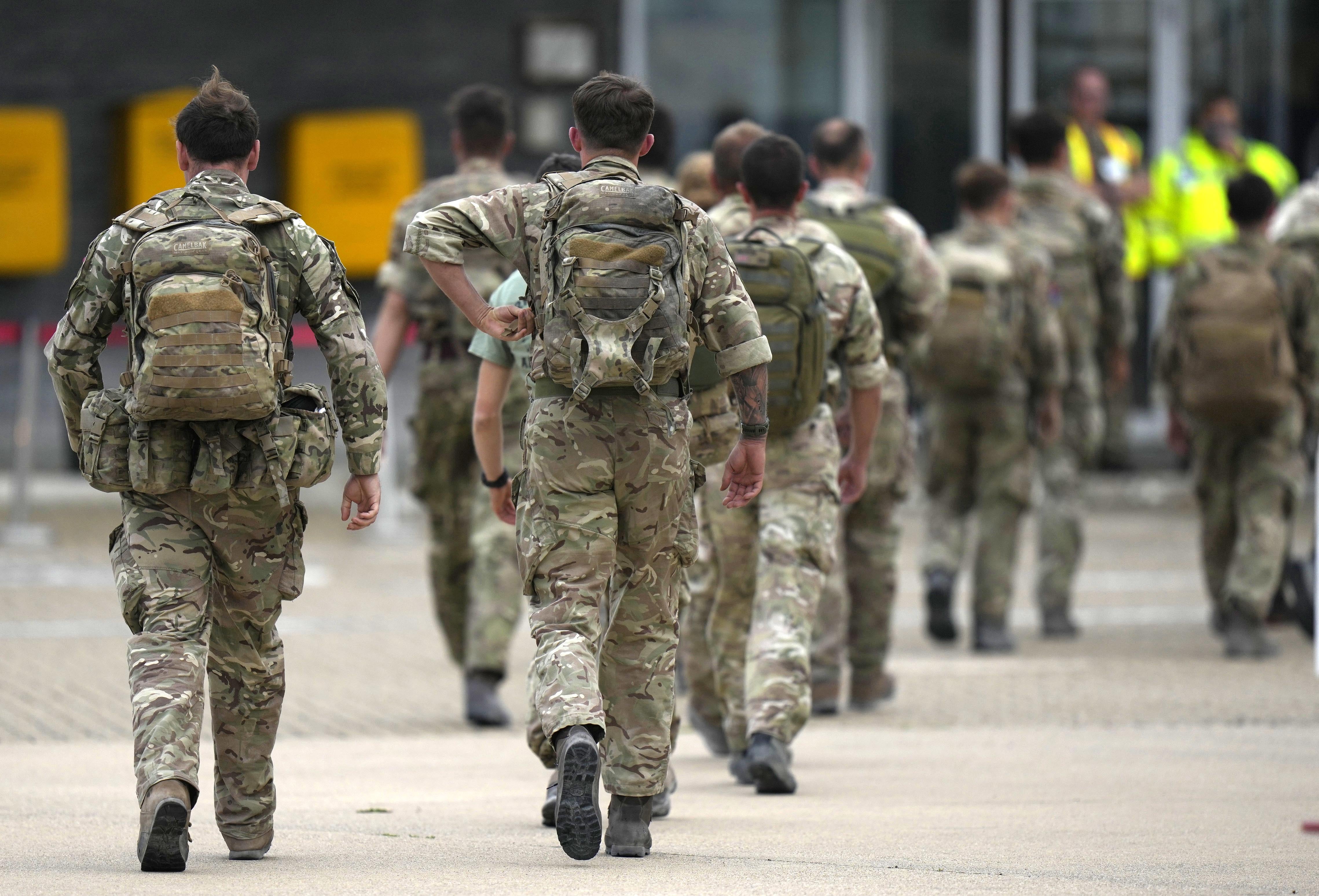Lessons must be learned from Afghanistan evacuation, says Foreign Secretary
Liz Truss said the evacuation effort was ‘heroic’ but that improvements had to be made in her department.

Your support helps us to tell the story
From reproductive rights to climate change to Big Tech, The Independent is on the ground when the story is developing. Whether it's investigating the financials of Elon Musk's pro-Trump PAC or producing our latest documentary, 'The A Word', which shines a light on the American women fighting for reproductive rights, we know how important it is to parse out the facts from the messaging.
At such a critical moment in US history, we need reporters on the ground. Your donation allows us to keep sending journalists to speak to both sides of the story.
The Independent is trusted by Americans across the entire political spectrum. And unlike many other quality news outlets, we choose not to lock Americans out of our reporting and analysis with paywalls. We believe quality journalism should be available to everyone, paid for by those who can afford it.
Your support makes all the difference.It is clear there are “lessons to be learned” from how the Foreign Office handled the evacuation from Afghanistan the Foreign Secretary has said.
Speaking at the Chatham House policy institute on Wednesday, Liz Truss said there was a “heroic effort” to airlift 15,000 people from the country as Kabul collapsed to the Taliban in August.
But following evidence given to the Foreign Affairs Select Committee on Tuesday, Ms Truss admitted process in her department needed to change.
MPs on Tuesday lambasted the “lack of leadership” during the Afghanistan evacuation as the Foreign Office’s top civil servant admitted he regretted continuing with his holiday while Kabul fell.
Sir Philip Barton, permanent-under secretary at the Foreign, Commonwealth and Development Office (FCDO), told the Commons committee he wished that he had “come back from my leave earlier”.
Having left for his holiday on August 9, the senior mandarin remained away for 11 days after Kabul was taken by the Taliban on August 15 following a lightning advance.
“I have reflected a lot… and if I had my time again I would have come back from my leave earlier than I did,” he told MPs.
Later in the hearing, he said he did “regret the fact that I didn’t decide to come back to support” colleagues, but that he did not think his decision “affected the outcome” of the evacuation.
But he faced heavy criticism from MPs on the committee, including Conservative Alicia Kearns, who was heard to say he “couldn’t be bothered”.
The comments came after awkward questions were asked of both the Prime Minister and his deputy, Dominic Raab, by a whistleblower testimony given to the committee.
Former official Raphael Marshall, who worked for the Foreign Office during the evacuation effort, claimed that of the Afghan nationals who applied to flee under one UK scheme just 5% received help, as a result of the “dysfunctional” and “chaotic” handling of the situation.
Mr Marshall told MPs that some of those hoping to escape were murdered after being left behind in Kabul.
A second whistleblower told the BBC’s Newsnight programme that officials had been preoccupied with “political fallout” rather than crisis management during the evacuation of Kabul.
Ms Truss said: “Clearly there are lessons to be learned.
“The Permanent Secretary is clear that he should have returned from holiday earlier, as was my predecessor.
“And what I’ve done, since I’ve become Foreign Secretary, is make sure that we have processes in place to address any future issues.”
Ms Truss said there was now better risk monitoring, a better emergency response system, and better processes for deploying staff at speed in the event of a crisis.
And she said: “I’m absolutely confident that we now have those processes in place in the event – in the unfortunate event – of a similar situation.
“It’s worth pointing out though that the situation faced in Afghanistan was the second-largest evacuation that the UK has ever carried out. So I don’t underestimate the challenge that the Foreign Office faced at the time.”
She added that work had not stopped on bringing eligible people out of Afghanistan to the UK.
She said: “We need to stop Afghanistan becoming a hotbed of terrorism. And my view is we need to be aligned with the international community in doing that.”
The Prime Minister told reporters on Tuesday that “sometimes decisions took hours longer than we wanted” during the evacuation, but “you have to be careful about how you do it, it was still an astonishing thing to get 15,000 people airlifted out of Kabul in pretty harrowing circumstances”.
The Operation Pitting airlift – put in place as foreign forces withdrew after a 20-year occupation of the central Asian country – was “one of the outstanding military achievements of the last 50 years or more”, Mr Johnson added.
Giving evidence to MPs, former ambassador to Afghanistan Sir Laurie Bristow said he had warned officials in London around August 13 that Kabul was likely to be overrun by Taliban fighters.
According to reports, Mr Raab, who was then foreign secretary, did not return from his holiday on the Greek island of Crete until August 16 – three days after Sir Laurie had flagged that Afghanistan was falling more quickly than anticipated.
Mr Raab also came in for criticism as part of Mr Marshall’s allegations, with the claim that the Cabinet minister “did not fully understand the situation”, was slow to rule on cases and requested they were reformatted “in a well-presented table” before making a decision.
The senior Tory, who was moved to the posts of Justice Secretary and Deputy Prime Minister after his handling of the crisis, said “some of the criticism seems rather dislocated from the facts on the ground”.
“I do think that not enough recognition has been given to quite how difficult it was,” he told the BBC.